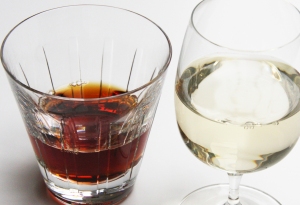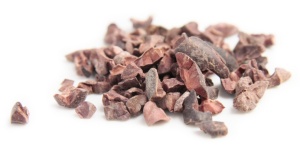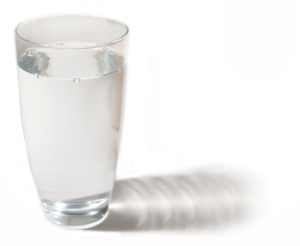The beginning of a New year is a time when many people consider making some changes – especially to their health. Perhaps a detox or to get fit . The majority of adults drink alcohol, some much more than others and there comes a time when assessing your alcohol intake and reducing or removing it from your daily life could be one of the smartest decisions you make for health and well-being, and even happiness.
. The majority of adults drink alcohol, some much more than others and there comes a time when assessing your alcohol intake and reducing or removing it from your daily life could be one of the smartest decisions you make for health and well-being, and even happiness.
There is no escaping the fact that if you drink regularly you need to give it a rest and think about doing some healing, no matter what age you are, alcohol will eventually get to your health.
Is the government’s alcohol safe limit really safe? Not really – but it is lower than what many people still perceive to be safe.
It’s not that the government is recommending high amounts of alcohol, far from it. The guidelines are quite moderate in comparison to what many people think is safe. In my practice I have met intelligent men and women who do not think anything of drinking a whole bottle of wine in one night, nearly every night and may consider their one night of ‘detox’ a Sunday night. I have met young men who had no idea that drinking a whole bottle of whisky in one night could actually have killed them.
Government guidelines state that women should not consume over 2-3 units per night and men 3-4 units per night. Don’t get too excited – That’s just one large glass of wine or 1.5 pints of beer, and guess what – even that is too much if you really want to be healthier, have more energy, better digestion and lose weight. One unit of alcohol is a very small glass of wine or even quarter of a pint of beer, this I would feel happy saying is safe in most individuals (not all).
Alcohol contains high amounts of calories and not only are these empty calories (they have no nutrients) but alcohol makes huge demands on our nutrient reserves like B Vitamins, Vitamin C and many minerals, as these are needed to detoxify, neutralise and straighten things out after a binge. One of the first signs of cutting back drinking is less puffiness, especially in the face.
Alcohol has a detrimental effect on gut flora (good bacteria) which can cause gut dysbiosis (imbalance of good and bad microbiota) also it can lead to damaged gut lining and poor digestion. This in turn can cause many different health problems and can be a huge contributing factor in serious degenerative diseases later in life.
Alcohol has to be detoxified in the liver – and it is vital that the liver can cope with this process. It causes fatty acids to be produced in the liver – which eventually leads to fatty liver disease which is life threatening. Alcohol also damages the liver cell (hepatocytes) Alcohol affects every tissue it touches, from entering the mouth, the oesophagus and the whole digestive tract. It travels around in the blood stream and has access to every tissue in the body.
Some people have better equipped livers than others, hence why certain individuals seem to be able to get away without having a severe hang over, but that doesn’t mean it is not causing health problems.
It causes premature aging – of every cell in the body! If you drink regularly and would like to have healthier younger looking skin – simple: Stop drinking alcohol (or reduce down to minimal amounts)
Remember – when you are younger you don’t feel the effects of alcohol as much as when you get older – but it is still doing as much damage and may be setting you up for poor health in the future.
Dangerous by products of alcohol metabolism
Acetaldehyde and acetate, produced from the oxidative metabolism of alcohol, contribute to cell and tissue damage in various ways and can lead to liver enlargement and other problems.
It binds with DNA to form carcinogenic DNA, and to neurotransmitters in the brain to create alcohol dependency, and cause a oxygen deficit in cells which can lead to tissue damage and disease.
The other pathway of alcohol metabolism leads to the formation of toxic fat molecules and esters – these interfere with cell signaling which encourage degenerative diseases like cancer.
These toxic elements (Free radicals) play a big part in cancer development (i.e. carcinogenesis), atherosclerosis, diabetes, inflammation, aging, and other harmful processes.
Alcohol also changes brain chemistry – which can last long beyond the actual act of drinking, days even weeks. It can affect individuals differently gets worse over years of consuming alcohol. In you’re 20’s you don’t notice it so much, but mental clarity can diminish when you get into your 30’s, 40’s and 50’s worsened by alcohol consumption. There are other aspects of diet, stress and general lifestyle that can affect mental clarity, but alcohol consumption is one of the main threats as the toxins cross the blood/brain barrier and literally go straight to the brain! It can make people irritable, aggressive and depressed as well as tired and suffer memory loss, mental fogginess.
So taking all of the above into account it is common sense that long-term and even short-term consumption of alcohol causes tissue aging, organ damage and disease – long beyond the actual ‘morning after’ hangover or even the tiredness the next day. If you drink even 1 large glass every night, or 2-3 glasses every few days all the above still applies to you. 1-3 glasses per week or less is the safest way to drink.
Beer Wine or Shorts? Which is better?
Beer does contain some B Vitamins because of the yeast used to produce it – but conversely many people have a yeast sensitivity due mainly to dysbiosis in the gut (in particular yeast infections) so it can cause more problems, and the process of metabolizing the alcohol itself will use up any extra B vitamins and more.
Wine also contains Yeast in smaller amounts – Champagne and spirits generally don’t, but are highly acidic and don’t contain any nutrients.
Red wine is really the only alcoholic drink that has been found to have some beneficial effects on the body – because it contains anthocyanins found in the skins of red and black grapes. This has been found to reduce the risk of cardiovascular disease as these are powerful antioxidants, but even then if more than one glass is drunk it becomes a health risk not a health promoter. Also it is better to drink organic red wine as there are far less toxins. Many wines contain toxic sulphates and over harmful chemicals, which can cause headaches just from one glass of wine.
To get the same beneficial effect of the antioxidants you can eat organic red grapes (or other black-skinned fruit and vegetables) or take a ‘Resveratrol’ supplement – it’s much safer, but maybe less fun.
How to Protect yourself from the effects of alcohol consumption.
Most people, including me, like to have a drink at social occasions – and the reality is you still will. But now you are armed with knowledge I hope it helps you to reduce your intake – not just for the January ‘Detox’, but for life.
There are things that you can do to protect your body and brain function.
This advice is for moderate drinking and although it does help all kinds of drinking it will not protect you from outright alcohol bingeing.
First of all NEVER drink on an empty stomach, always eat well before and include vegetables for the antioxidant content.
Glutamine is one of the main amino acids that support brain and liver protection – you can take it as a supplement before going out drinking. There are many brands, the brand I like is ‘Perm-a-vite’ by Allergy research as it has Glutamine as well as other nutrients that support and heal gut lining which is vital when drinking alcohol as it can cause gut lining damage.
Take a mineral supplement to help neutralise the acidity caused by alcohol consumption
Alcohol should never be taken with any medication.
If you are drinking you should take extra buffered Vitamin C, a B Vitamin complex and Essential fatty acids – but either after or a while before not during.
A high potency antioxidant complex should be taken too.
Herbs that protect:
Milk thistle aids liver cell repair, Shisandra aids alcohol detoxification (taken before and after) Rosemary supports liver function – they have been scientifically proven to assist the liver . You can visit a nutritional therapist or a herbalist to get the best combination for your personal needs.
Note: Shisandra should not be taken with vital medications as they can speed up the detoxification through the liver and reduce the efficacy – consult your doctor or a herbalist before use.
Alcohol metabolism also causes the destruction of major antioxidants , and increases hugely the need for dietary or supplemental antioxidants.
Antioxidant foods:
Organic prunes – have on porridge, put in deserts or just eat with a handful of almonds as a snack
Berries – especially organic blueberries
Black skinned grapes
Orange and lemon peel
Goji berries
 Raw dark chocolate (in moderation)
Raw dark chocolate (in moderation)
Vegetable juices
Green leafy vegetables
Fresh nuts and seeds
Drink water regularly when drinking alcohol and drink at least two glasses before going to bed to aid detoxification and stop dehydration. Green tea is even better as this speeds up detoxification process in the liver.
It’s not all bad news, re-assessing your drinking habits, consuming in moderation and taking steps to protect yourself is a really good way to feel less guilty and physically better whilst still having a
social drink with friends.
For more information:
Please note that this information is not a substitute for medical supervision, if you have any health concerns seek advice from your doctor.
